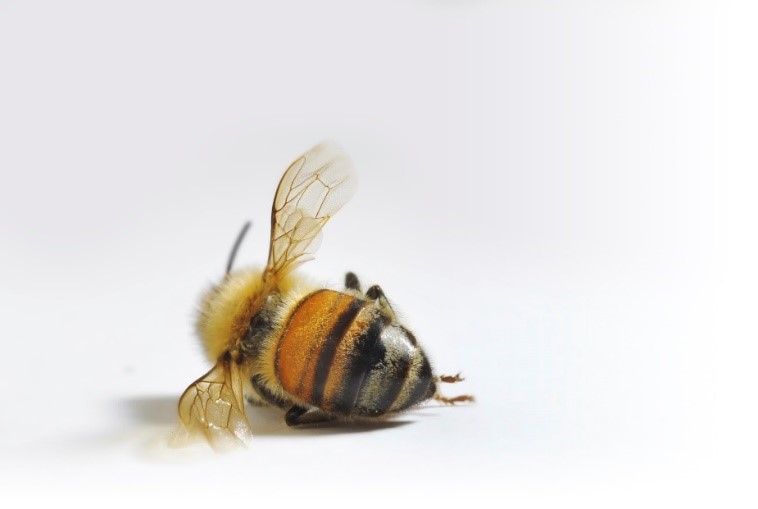A buzzin’ debut post by Caelan for Team Scrutiny Fabulous reviews the lack of progress with Manchester City Council’s commitment to phase out glyphosate weed killer as part of its response to the ecological emergency, as discussed at December’s Environment and Climate Change Scrutiny Committee.
Glyphosate, commonly known as Roundup, is a ‘probably carcinogenic’ weed killer found in gardens, parks, roads, cemeteries, and human food, urine and breast milk.
Last year, Manchester City Council (MCC) used a staggering 2,664 litres of glyphosate weed killer in just 12 months, that’s more than 50 litres every week…*

This chemical weed killer, classified as a hazardous substance, has a profoundly negative impact on flora and fauna, and has been shown to “affect negatively the survival, development and behavior” of bee populations. Indeed, as pointed out by Cllr John Hughes (Gorton & Abbey Hey) at this week’s scrutiny committee, there is a history of glyphosate-induced morbidity in animals across Manchester, and it is incredibly dangerous to humans. “Why don’t we just stop it altogether?” he asked.
Well, MCC’s latest report dismisses any requests to put an end to its use. The report more-or-less reads: ‘there’s nothing to be done…’, ‘we tried, but it’s too hard…’, ‘some people might complain…’, ‘we did what we could…’. The report focuses more on the ‘unsightly’ nature of ‘weeds’ than the harmful effects of wholesale glyphosate spraying of council property.There is no investigation whatsoever in the report about the impact glyphosate is having on the health of Manchester’s human and more-than-human populations. Apparently, we all just have to learn to love glyphosate, because heaven forbid a few dandelions grow between the pavements. It would look unsightly after all!
Yet, as pointed out by Cllrs ShiltonGodwin (Chorlton Park) and Holt (Chorlton), MCC did commit to phasing out its use a couple of years ago, and have been discussing it for the past 5 years, so why do councillors once again need to put recommendations to the council for a moratorium on its use?
Other recommendations from Cllrs Flanagan (Miles Platting and Newton Heath), Foley (Didsbury East), Holt, Shilton-Godwin, and Wright (Hulme) at this week’s Environment and Climate Change Scrutiny Committee (available to watch here from 1:37:00) included:
- a request for a report by Pesticide Action Network on best-practice for glyphosate removal from other councils who have already done so
- a cost-benefit analysis of glyphosate usage (including impact on health, biodiversity, etc.)
- and an education campaign to raise awareness of the impact of glyphosate usage for the city’s health.
But will MCC listen?
The response from Fiona Worrall, Strategic Director of Neighbourhoods indicated that the Council would take these suggestions on board. But given their track record, having already committed to phasing glyphosate out two years ago, we won’t be holding our breath. It seems that, just like MCC’s action on the climate emergency, Manchester’s bee emblem is more style than substance – a performative endeavour that quickly unravels if you scratch beneath the surface and find the harmful chemicals between the cracks…
Footnote:
*The information on the vast quantity of glyphosate weed killer used by the Council is not contained in their report – that fact only emerged because a concerned citizen submitted a freedom of information request…
Team Scrutiny Fabulous brings together volunteers who want to hold Manchester City Council to account during the climate and ecological emergency. If you want to get involved, let us know via contact@climateemergencymanchester.net
Robbie is a core member of Climate Emergency Manchester.

1 thought on “MCC: How I Learned to Stop Worrying and Love Glyphosate”